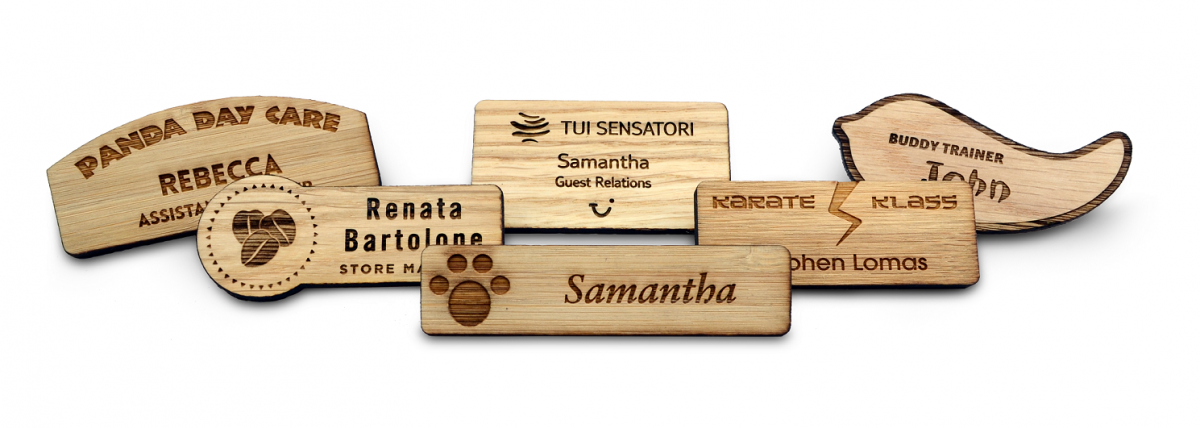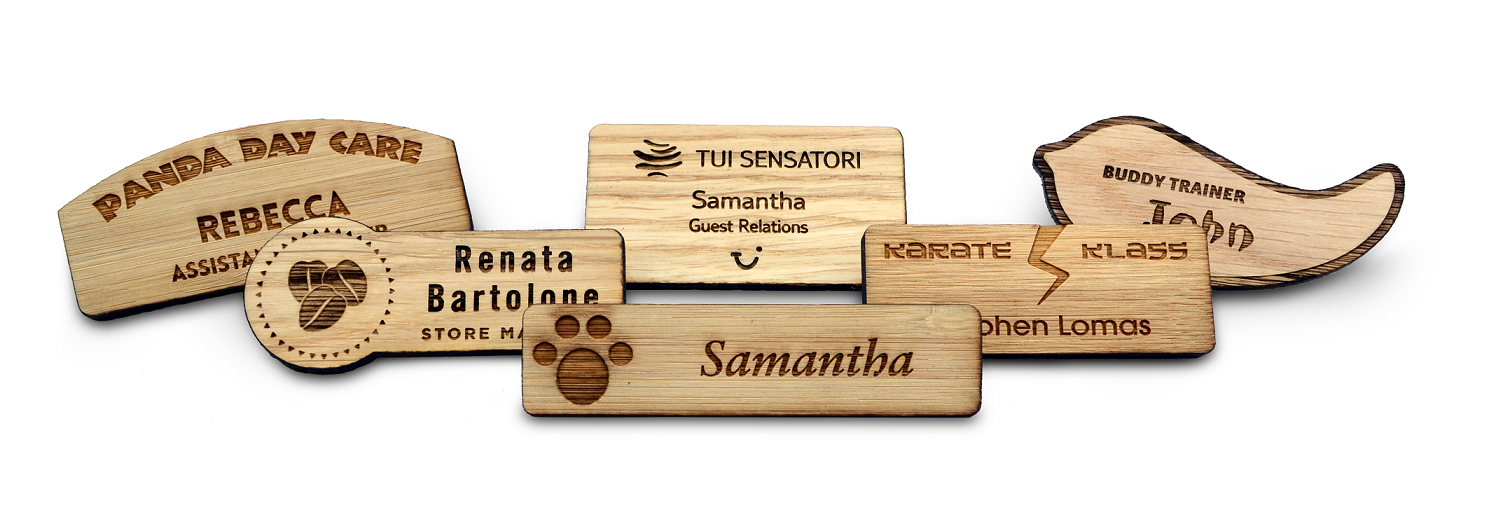We use cookies to make your experience better. To comply with the new e-Privacy directive, we need to ask for your consent to set the cookies. Learn more.
How to make your restaurant more sustainable: Practical tips from the experts (and why you need to reconsider your name badge now).
Running a restaurant or chain of eateries is about more than serving good food and giving diners a great experience. Plastic pollution, deforestation and landfill are a few of the environmental impacts being taken more seriously and restaurants are being increasingly urged to operate more sustainable. Thankfully there are many sources of advice to help you go green, but the question is:
1. Where do you start with making your restaurant more sustainable?
Carbon Free Dining is the zero-cost restaurant sustainability solution designed to help restaurants demonstrate their passion for the environment. Their team know a thing or two about limiting environmental impact and suggest four steps to get started with sustainability: 1) Make a note of the resources you use 2) Know your most used resources 3) Choose a sustainable supplier and 4) Know the energy your business is consuming.
"Some camps believe that adopting a more sustainable approach is not only good for the environment but good for business too. A survey carried out on behalf of the Sustainable Restaurant Association (SRA) found that more than 80% of consumers said that ethical and sustainable criteria had been a deciding factor in their choice of dining destination."
2. Reduce food waste in six weeks
With Raymond Blanc OBE at the helm, the SRA is on a mission to make sustainability part of the DNA of every foodservice business and they’re taking diners on the journey with them. One of the issues they’re tackling is food waste. Guidance and support through their campaign Food Waste: Bad Taste will get you off to a good start. The online programme is designed to help you set a target for food waste reduction and effectively manage and measure progress. Take their food waste quiz to find out where you could improve.

3. Select your suppliers with sustainability in mind
According to Sustain: the alliance for better food and farming, there’s another consideration – and that’s before we even begin to think about food waste. They believe businesses adopting a sustainable approach need to consider their suppliers. Their seven principles include excluding fish species identified as most ‘at risk’ by the Marine Conservation Society, choosing Fairtrade-certified products and suppliers and avoiding bottled water. They also advise choosing food from farming systems which minimise harm to the environment. Andrew Stephen, CEO of the SRA discusses this issue in Big Hospitality’s article. The article adds more food for thought and raises valid points about dairy producers and energy use in relation to reducing environmental impact.
4. Reduce, re-use and recycle
Reducing water usage, re-using linens to save chemical cleaners and recycling anything and everything possible is all good practice. But there’s another way you can demonstrate your restaurant’s environmentally friendly approach – by choosing a name badge that reflects your sustainability.
Our best-in-class environmentally friendly name badge is made from bamboo. Bamboo is an eco-friendly natural material that’s fast-growing, biodegradable and renewable. Beyond their environmentally friendly credentials, the natural-looking badges add character that complements every style of corporate uniform from traditional to the on-trend rustic look. Plus, they’re waterproof, antibacterial, durable and lightweight.
FSC-approved wooden name badges can help limit your impact on the environment too, and are a favourite with Nandos and Costa. FSC-approved wood means it has been sourced from suppliers who are serious about adhering to strict environmental, social and economic standards. Plus, the timber is tracked from the forest to the final user so you can be sure of minimal impact every step of the journey. As a supplier of FSC-approved wooden badges we’re also committed to protecting the environment and have ISO14001 certification.
Finally, let’s talk about biodegradable plastic badges. The PETG name badge is the badge of choice for the Co-op. PETG is made from polyester, it’s 100% recyclable and biodegradable. Plus, it’s strong enough to withstand repeated use and still stay looking smart. Another option is the ABS name badge which is 100% recyclable too.
And if choosing a more sustainable material for your name badges is difficult, simply reuse, reuse, reuse – it’s cost effective and you can still do your bit for the environment too.
5. Increase energy efficiency
A study has identified that commercial kitchens in the UK consume around 6500 million kWh of electricity every year. Appliances use most of that electricity. So, something as simple as switching from standard to energy-efficient models can make a big difference.
This guide from Green Hotelier covers plenty more practical tips to reduce energy consumption in your kitchen. It includes simple ideas such as fitting an induction hob and using equipment which reduces idling time, to more sophisticated changes like introducing intelligent demand control ventilation and passive infra-red light sensors.

6. Find out how sustainable your restaurant is in minutes
From small changes to significant sustainability initiatives, it’s easier than ever to go green, but where do you start? Take the Carbon Free Dining quick quiz and discover how sustainable your restaurant is. They’ll even plant a life-changing carbon offsetting fruit tree in the developing world in the name of your restaurant and send you a certificate.
Want to show your commitment to sustainability? Get in touch with our expert advisors and in-house design team today to design your environmentally friendly name badge. Call us on 01623 723112.


